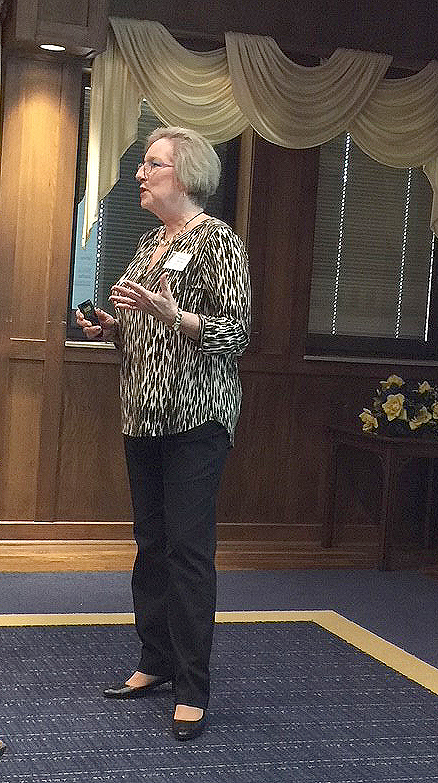Education alumni affiliate supports Toledo Transition (T2) program
By Laurie B. Davis
When students with intellectual and developmental disabilities talk about The University of Toledo’s Transition program, or T2, they share stories about learning in their classes and the opportunities they’ve had to try new activities, such as cooking a healthy meal, working out in a gym or working at a job on campus. When you hear from the parents of those same students, you find out how their children have grown in confidence, self-advocacy and in connecting socially with others.
The Judith Herb College of Education’s T2 program provides students with intellectual and developmental disabilities a college experience that enhances their social, academic and vocational skills, which lead to a higher quality of life. UT offers a two-year or four-year, non-degree certificate program for young adults seeking an inclusive college experience that prepares them for gainful employment.
Earlier this spring, Dr. Patricia Devlin, who directs the T2 program at UT, gave a presentation to members of the Judith Herb College of Education Alumni Affiliate to educate them about the transition program and introduce them to third-year student Danny Napoli, and his mother, Annette Napoli.
This year, the affiliate established a fund — the Judith Herb College of Education Alumni Affiliate Toledo Transition (T2) Scholarship Fund — to provide financial support to students returning to the post-secondary Toledo Transition program. “We are very thankful to the JHCOE Alumni Affiliate and the College in general for the support we have received for T2,” says Devlin.

The T2 program comprises four key areas to help students attain success: academics, employment, independent living/campus membership, and self-determination/student development.
The academics area provides access to an education through auditing UT inclusive courses and Program Learning Community courses. The employment area supports career development and job readiness through paid and unpaid internships. In the independent living and campus membership area, students receive a Rocket ID card and participate in campus and community organizations and events. Students also are taught to live independently, make health lifestyle choices and socialize successfully. In the area of self-determination and student development, students attend person-centered planning meetings, in which advocates help review progress, identify necessary supports and develop goals and action steps. Students also focus on short- and long-term goals, self-advocacy, and student-directed learning strategies such as self-monitoring and self-evaluation.
The Toledo Transition program also provides experiential learning opportunities for UT students, who are trained as educational coaches and mentors for the T2 students. “The program serves as a learning lab for students majoring in education and varied disciplines such as occupational therapy, recreational therapy, disability studies and speech-language pathology,” says Devlin.
Devlin has developed collaborative partnerships within the Toledo community and on the UT campus. She is planning to slowly expand the program with an increase in students and philanthropic support. “The program will have 11 students in the upcoming year, with a maximum of 25 to 30 students by 2020.” To contribute to the Judith Herb College of Education Alumni Affiliate Toledo Transition (T2) Scholarship Fund, please visit The University of Toledo Foundation website’s Fund Your Passion web page and use the search function to find the fund.






